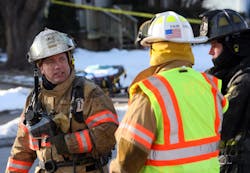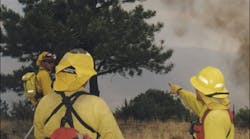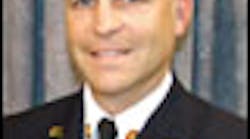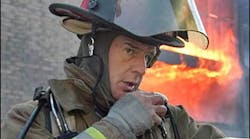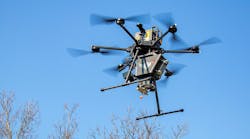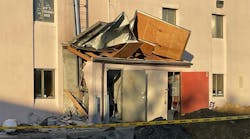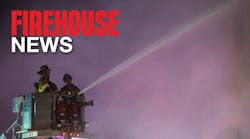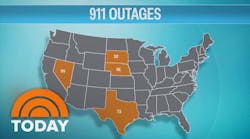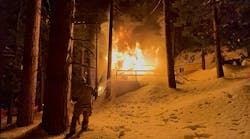It has been a very busy time around our area. Fire everywhere, motor vehicle accidents are on the rise and medical calls at an all-time high. Does this sound familiar?
This seems to be the current trend everywhere. This has given me the opportunity to listen to lots of radio traffic and observe many face-to-face discussions. As a result I have noticed a trend that basic communication seems to be a problem around many incidents. These observations led me to have some anecdotal discussions with some very experienced incident commanders from various places. Each of these commanders verified that fireground communication seems to be problematic in some form or another.
It seems that in today's fire service there are many styles of communication developing. In some areas it has gotten so bad that some departments that neighbor each other seem to have their own jargon. Most of the officers and senior firefighters I spoke with all agree that slang terms have grown to a point where it's a problem. I'm not saying that slang terms are all bad and never have a place, only that we should consider their timing.
The big city fire departments across the country, in many cases, do have a language of their own and it has been used so much it really isn't slang anymore. Part of the issue is as with many things; TV, movie, and the media are driving how we try to work. A prime example, the other day in a small county near where I live, an engine marked on scene with a working job. Now most people reading this will understand perfectly that it was a working fire, but guess what, the dispatcher had no idea. There was a delay as she had to call back for definition. A second example, a fire officer requested a PWC, the firefighter had no idea what was needed. He had to call back to find out that the officer wanted a water can or portable water can.
While these examples may seem silly, imagine if you have five or more at an incident, or even one at a critical time what could happen. How can we combat these situations? Remember that in 2006 NIMS developed and incorporated into the incident command system best practices for communication. This began to eliminate a lot of confusing stuff like 10 codes and code talk in general and suggested plain language. Using this as a basic guide can help. There are several other ways the fire service can fight communication problems.
One of the best and fastest ways to improve communication is to abandon the need to try and sound cool. Leave this to TV and Hollywood. Don't try to imitate what happens with radio language in the big cities, unless that is where you work. Again I know it's cool and adds flair to what we do, but not in times where communication is truly important.
Find what works for your department and use it. Try to keep radio and face-to-face communication languages common among departments in your area. Remember mutual aid is critical. We have to be able to talk to one another. Develop SOGs for how your personnel will use radio communication. Be sure to use the NIMS information as your guideline and this will keep most departments on the same page.
The most important way to improve communication is to train and practice. Incorporate communication in every drill you do. Think of it this way, each time we practice fireground operations we go back and review how we deploy our hose lines and manage water supply. We concentrate on how well we do searches, ventilation and all other skills. Rarely do we stop and look at how well we communicated. Did the dispatch go well? Did we communicate equipment needs? Are we correctly using terms that everyone understood?
Try simple exercises like role playing dispatch procedures. Examine how the crew reports conditions that are found. Critique how size-up is communicated, was it smooth and understood by all, or where there problems. When an issue is encountered review it against department procedure and correct these problems. Lastly, anytime there is a debriefing following an incident, include time to look at how communication went.
Remember, it is more important in our business to be understood than to sound cool! Train hard, train often.
